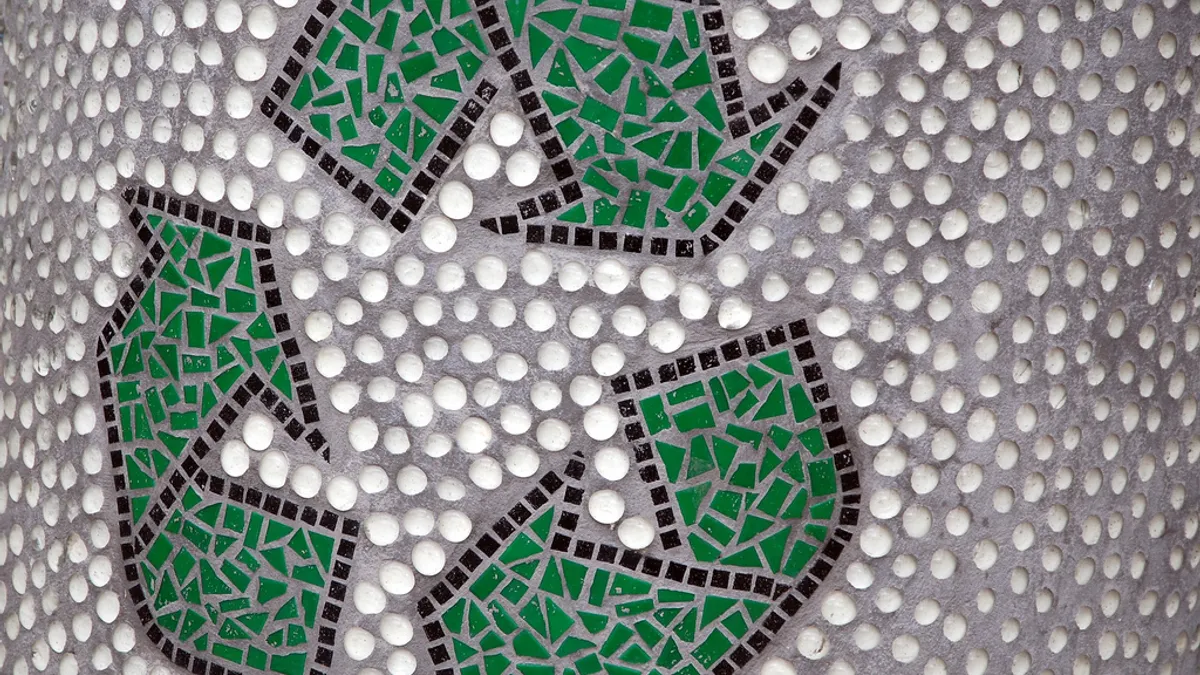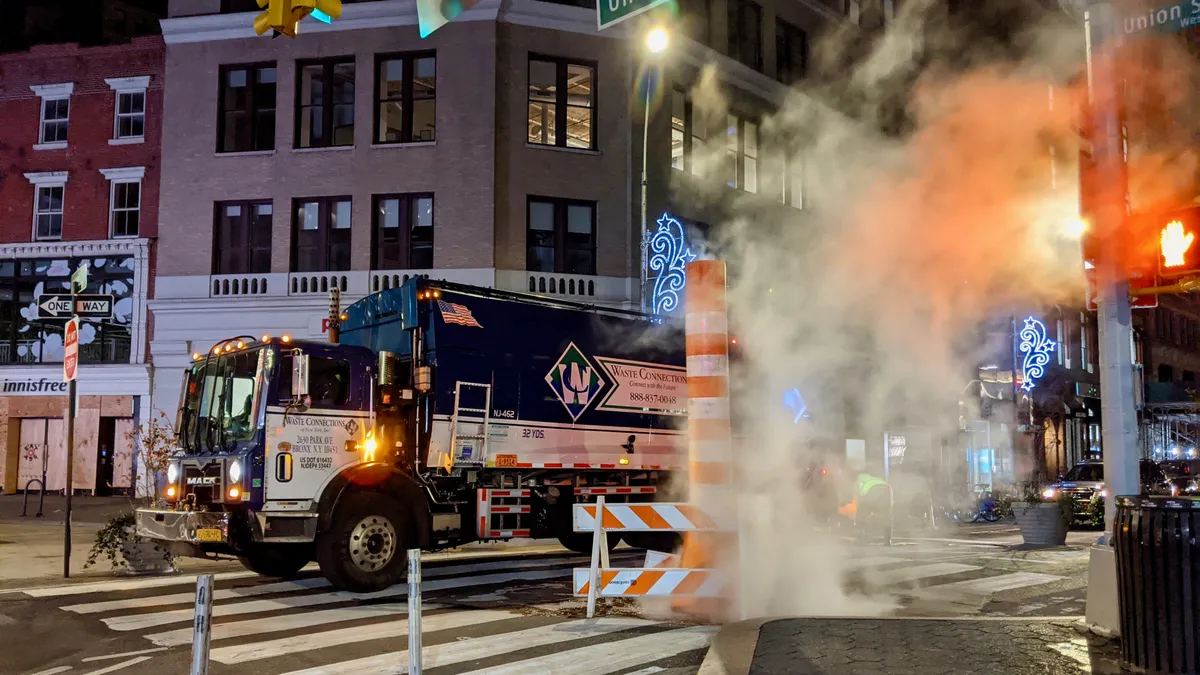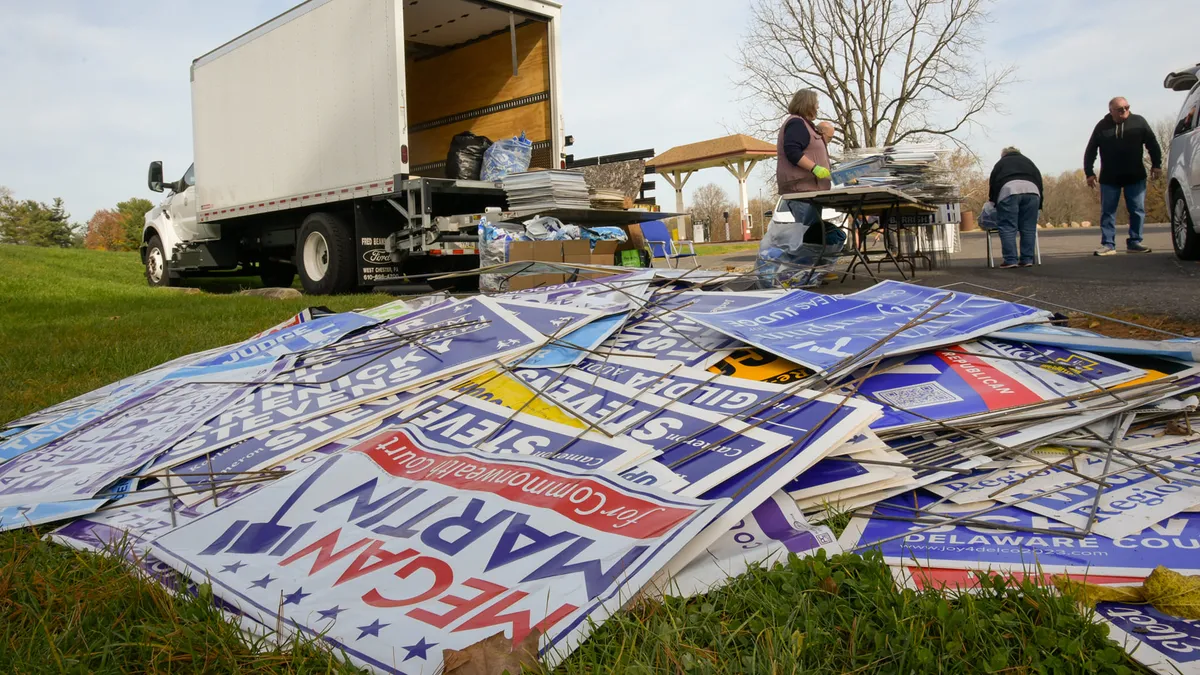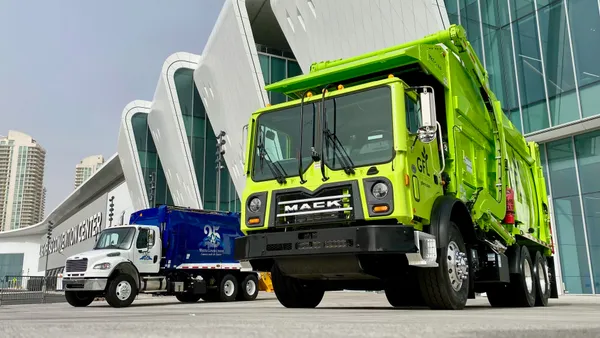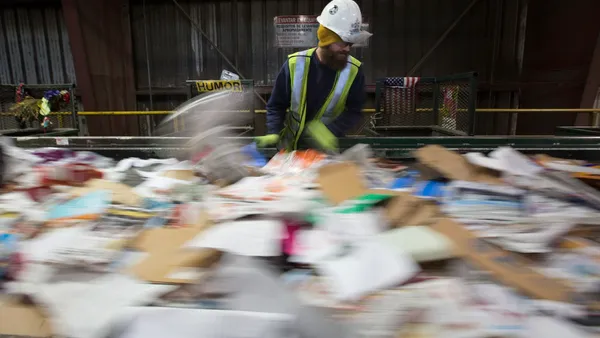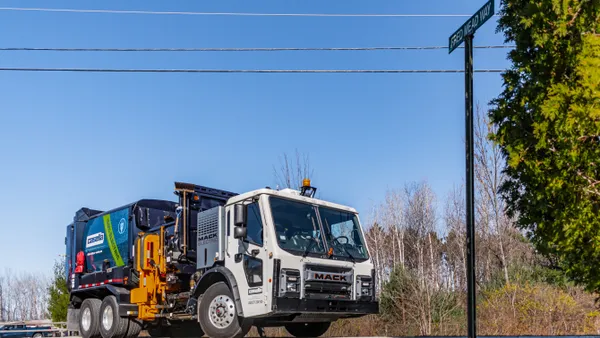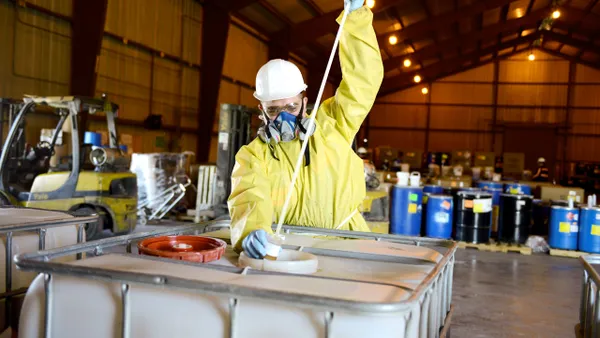Dive Brief:
- Rubicon Global recently announced a partnership with TerraCycle, a New Jersey-based company known for specializing in the recovery of more than 100 hard-to-recycle products. This non-exclusive partnership involves both companies sharing their customer lists and collaborating on work in the U.S.
-
"Rubicon does all of those things that we don’t do," Brett Stevens, vice president of material sales and procurement told Waste Dive. "The partnership was formed in an effort to fill in each other’s service gaps." Stevens said if a large retail client that used TerraCycle's services for specific materials wanted help with more traditional commodities, they would be referred to Rubicon — and vice versa.
- The two companies have a mutual connection through Suez and their executives actually had a chance meeting at the company's Paris headquarters. Months later, Rubicon contacted TerraCycle about working together and the partnership was born.
Dive Insight:
Both Rubicon and TerraCycle are run by CEOs in their mid-30s who enjoy talking about waste diversion and have big fundraising plans, so in many ways the partnership is a natural fit. TerraCycle recently filed plans to raise $25 million, while Rubicon has raised funds on a larger scale — enough to be granted "unicorn" status — and recently attracted the inevitable scrutiny that comes with it.
The Suez association, while not a direct catalyst for the collaboration, also shows that both companies have global ambitions. TerraCycle sold a stake of its interests in six European markets to Suez in 2016. Earlier this year, Suez acquired a stake in Rubicon and led a $50 million funding round for the company to begin an ongoing partnership that was recently on display during a joint session at WASTECON.
Described as being in the early stages, this partnership could go any number of ways. In the short-term it is focused primarily on leveraging opportunities for each company's existing customers. Both service clients ranging from small businesses to multinational corporations — many of which have a focus on maximizing their diversion to achieve sustainability goals. For TerraCycle, this means selling small "zero waste" boxes that let consumers collect items as specific as candy wrappers or capturing material at a larger scale in back-of-house retail and manufacturing settings. While Rubicon initially focused on larger clients it has now put a greater emphasis on small business accounts, which the company believes has attracted attention from some of its larger competitors.
Depending on how many new customers come onboard, this partnership could also help support a desire for more domestic processing of recyclables in light of new Chinese trade restrictions. TerraCycle said it makes an effort to utilize end markets in the same country where material was generated in the vast majority of cases.
“When you look at it through the lens of waste and recycled goods being a commodity, which is less what we do, then what’s happening in China can affect the market. For us, we see the past life as creating more value into a second life," said Richard Perl, TerraCycle's chief administrative officer. “As we deal with the waste for recycling we try to bring additional value to it, which creates the economics of our business but also insulates from those kinds of impacts."



